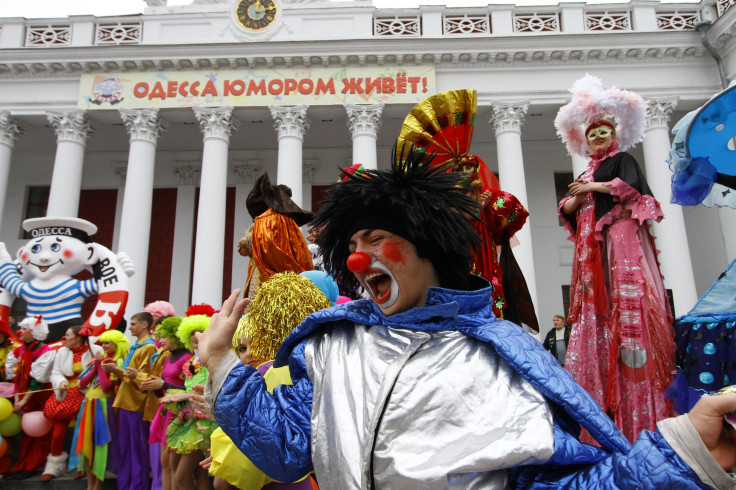April Fools' Day 2015 Facts, Trivia, Myths, History: Why We Celebrate This International Day Of Pranks And Jokes

The date is fast approaching for that one day each year when clever, practical scheming is not just acceptable but, in fact, appreciated: April Fools’ Day. History suggests that people have been playing practical jokes on each other for hundreds of years, but how the holiday and the spirit behind it became official remains a bit of a mystery. Here are the most popular theories about how April Fools' Day came to be and why we celebrate it today.
April Fools’ Day began in the year 1582, according to one legend, when Pope Gregory XIII (after whom the Gregorian calendar is named) moved the start of the new year from the end of March to the beginning of January. The change was made public, but not everyone got the memo, and those who didn’t and thus continued to celebrate New Year's Day on April 1 were laughed at. “Because they were seen as foolish, [they were] called April Fools,” medieval historian Ginger Smoak has explained, according to the Huffington Post.
Another myth is based on the same idea but suggests the change in the New Year happened at a slightly different time and place. It attributes the calendar change to France in 1564 -- rather than to the pope -- and when people celebrated the wrong New Year, others would paste paper fish on their backs, which explains why in France, the day is known as April Fish.
Others insist that April Fools’ Day is a joyous remnant of the age when people used to hold spring festivals marking the end of winter with “ritualized forms of mayhem and misrule” and when “people play pranks on friends and strangers,” according to the Museum of Hoaxes. Written references to the holiday go as far back as the 1500s, and detailed references begin to crop up in the 1700s, according to the museum, although by then the idea of pranks and all-around silliness on April 1 was well established.
The holiday is celebrated in many countries all over the world, including Poland, Iran and Scotland, and though there are too many theories about its origins for us to ever be certain how it really came to be, that's just part of the beauty of April Fools' Day.
© Copyright IBTimes 2024. All rights reserved.












